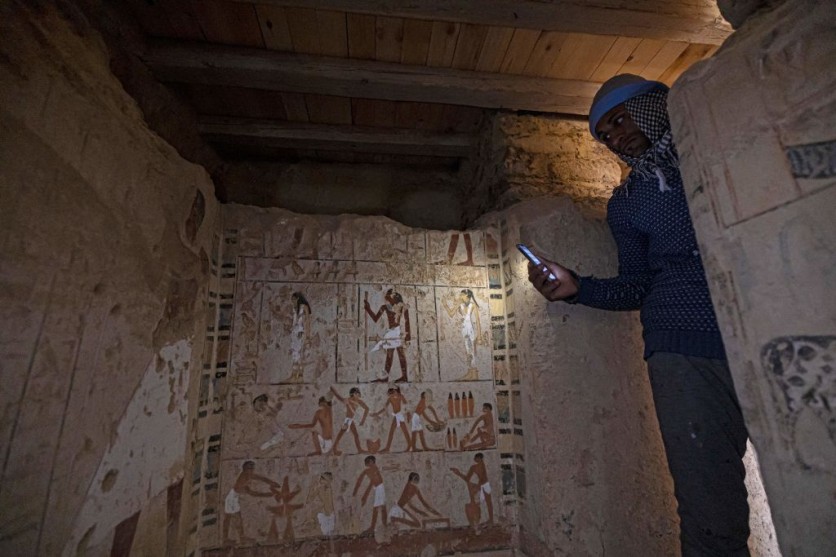Artificial Intelligence has once again showcased its worth in surprising avenues as researchers reportedly used AI to decipher the hidden text of an ancient 2000-year-old scroll buried back when Mount Vesuvius erupted, a discovery initiated by the Vesuvius Challenge.
The challenge's original sponsor, US tech entrepreneur Nat Friedman, revealed on Monday that three computer-savvy students from Germany, the US's Luke Farritor and Switzerland's Julian Schilliger, had won the $700,000 (£554,000) grand prize after deciphering more than 2,000 Greek letters from the scroll.

The Vesuvius challenge is reportedly a crowd-sourcing challenge that centers on machine learning to decipher buried ancient texts from the Herculaneum Papyri, a collection of manuscripts destroyed by Mount Vesuvius' explosion in 79 AD. The competition started in 2023 and is stated to have now awarded over $1,000,000 in prizes.
The newest discovery reportedly came from the trio that all had independently deciphered unreadable script previously; together, they extracted 15 columns of text from the carbonized scroll with the assistance of AI.
The AI-Deciphered Scroll
The scroll deciphered, as posted by Friedman, reportedly reads, as per a preliminary transcription of the text by a group of distinguished papyrologists, the author writing about music, eating, and savoring life's little pleasures.
Robert Fowler, chair of the Herculaneum Society and emeritus professor of Greek at Bristol University, went on to discuss the contents wherein he states the scroll talks about sources of enjoyment, including food and music, or capers, in particular, and whether or not a combination of things makes you happy depends on whether it is bountiful or the scarce.
Next, according to Fowler, the author of The Scroll is posing the query, "What is the source of pleasure in a mix of things?" Is it the mix itself, the dominant or scarce element?
Friedman then remarked that in the last portion, the author makes fun of anonymous ideological rivals who have nothing to say about pleasure in general or specific.
As for the author of the deciphered scroll, Fowler suggests it is the Epicurean philosopher Philodemus, as he claims the script's content is just within Philodemus' alley, and the style is characteristically gnarly for him.
AI-Assisted Deciphering
Several experts lauded the newest results. Scholars of papyrology, such as Fowler, say that this is a total game changer, especially with hundreds of undeciphered scrolls out there, ready to be read, he continues.
A similar praise was also expressed by Dr. Federica Nicolardi, a papyrologist at the University of Naples Federico II, who said this marks the beginning of a revolution in Greek philosophy and Herculaneum papyrology.
As for the entirety of the competition, there was a three-way tie for second place, in which the winners received $50,000 each for coming up with innovative approaches to the subtleties of ink labeling and sampling.
Looking forward, the Vesuvius challenge reportedly aims to read entire scrolls by 2024 instead of just a few passages. The sponsor went on to say, in the same post, that the first team to interpret at least 90% of all four scrolls scanned for the competition would win a brand-new $100,000 grand prize.
Related Article : Ancient Cuneiform Tablets Become Readable With New Automatic Text Recognition Tool

ⓒ 2026 TECHTIMES.com All rights reserved. Do not reproduce without permission.




